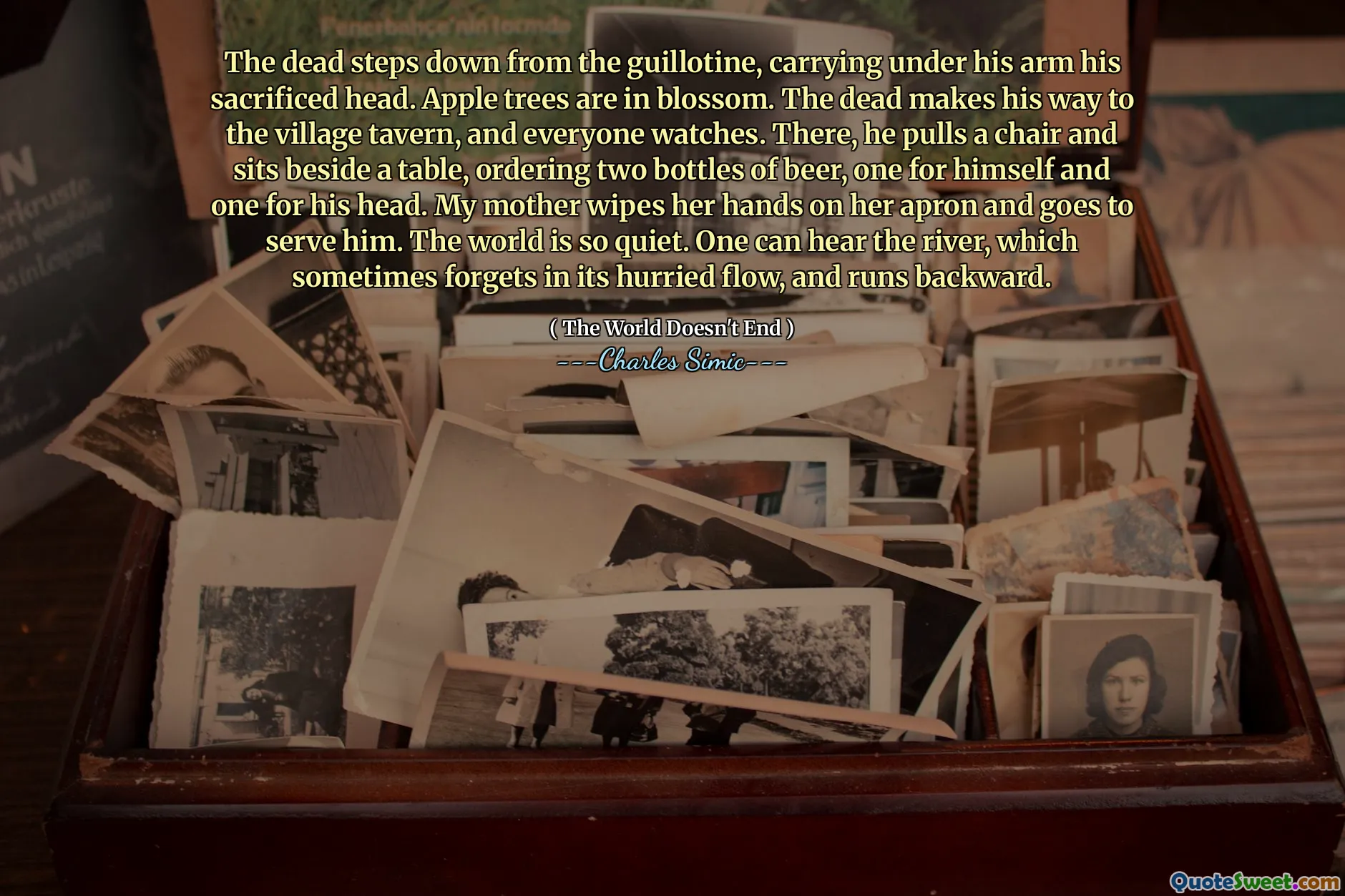
The dead steps down from the guillotine, carrying under his arm his sacrificed head. Apple trees are in blossom. The dead makes his way to the village tavern, and everyone watches. There, he pulls a chair and sits beside a table, ordering two bottles of beer, one for himself and one for his head. My mother wipes her hands on her apron and goes to serve him. The world is so quiet. One can hear the river, which sometimes forgets in its hurried flow, and runs backward.
This evocative quote paints a surreal and haunting tableau that interweaves themes of death, normalcy, and the fluidity of perception. The image of a dead man descending from a guillotine, yet calmly making his way to a tavern to have a drink contrasts the stark reality of mortality with the mundane comfort of everyday life. It suggests a world where death is not an abrupt end, but part of the continuous flow of existence, intertwined with ordinary moments. The blooming apple trees symbolize renewal and life, juxtaposed against the somber image of the decapitated head, perhaps emphasizing the cycle of life and death or the persistence of vitality amidst mortality. The quietness of the world, allowing one to hear the river flowing backward, suggests a suspension of time, an uncanny stillness where boundaries between life and death blur. It invites reflection on the transient nature of our pursuits and the subtle beauty in stillness and silence. The depiction of a mother serving a deceased loved one, with familiarity and tenderness, highlights the enduring connections that defy separation and the persistence of love even after death. Overall, the quote evokes a profound meditation on existence, memory, and the unnoticed serenity that persists beyond the chaos of life.






